
ICAS Bulletin (online ISSN 2836-3418, print ISSN 2836-340X) is published every other week throughout the year at 1919 M St NW, Suite 310, Washington, DC 20036.
The online version of ICAS Bulletin can be found at chinaus-icas.org/bulletins/.

– On February 13, American-born Chinese skier Eileen Gu sparked controversy on Chinese social media after replying on Instagram to a comment critical of her ‘special treatment’ in China by saying “anyone can download a VPN”—while some Chinese netizens praised her scrappiness, others criticized her for being out of touch.
– On February 7, George Washington University in D.C. reversed its decision to remove a set of posters on campus linking Chinese athletes to various human rights abuses, which Chinese student groups said “incited racial hatred and ethnic tensions.”
– On February 5, UN Secretary-General Antonio Guterres met on the sidelines of the Olympic opening ceremony with Chinese President Xi Jinping and Foreign Minister Wang Yi where an agreement was reportedly reached that a “credible visit” from UN human rights chief Michelle Bachelet to China—including Xinjiang—would occur.
– On February 3, House Speaker Nancy Pelosi spoke about the U.S. diplomatic boycott of the Beijing Winter Olympics saying “while we fully support, and will root for our athletes, we cannot and will not be silent on human rights in China just to bolster their bottom line.”
– On February 2, amid a diplomatic boycott of the Beijing Winter Olympics, Japan’s Parliament adopted a rare resolution calling China to address what it calls a “serious human rights situation” in Xinjiang.
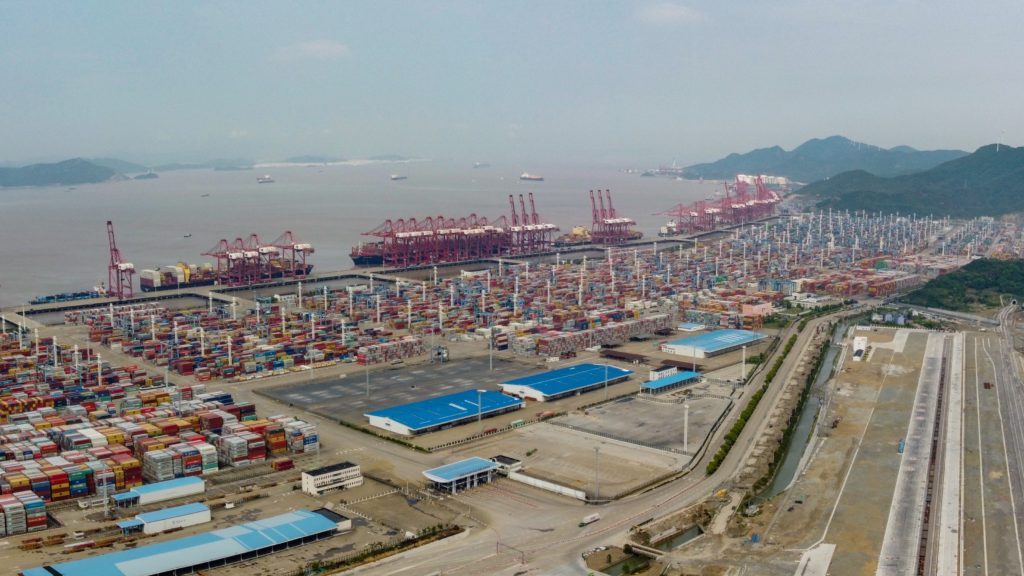
– On February 8, it was reported that China only purchased 57% of the $200 billion worth of U.S. goods and services that it agreed to purchase in 2020 and 2021 under the Phase One trade deal. Beijing has decried Commerce Secretary Gina Raimundo vow to compel China to make up this deficit before moving forward on lifting tariffs.
– On February 8, the U.S. Department of Commerce added 33 companies to its list of foreign entities with ‘unverified’ ownership, restricting various transactions with them. The same day, the Justice Department unsealed an indictment against Shenzhen-based Hytera Communications Corp alleging that it conspired with former Motorola employees to steal U.S. mobile radio technology.
– On February 7, a bipartisan group of Senators called on USTR Tai to expand the scope of companies eligible for exclusion from Trump-era tariffs on Chinese goods, citing “the tariffs’ negative impacts on U.S. businesses.”
– On February 6, it was reported that six Chinese-based companies have filed documents with the Securities and Exchange Commission to list on the NASDAQ in their own right without a U.S.-based subsidiary.
– On February 4, the U.S. House of Representatives passed the America COMPETES Act—a bill intended to enhance U.S. competitiveness with China slated to be reconciled with its Senate counterpart, USICA.
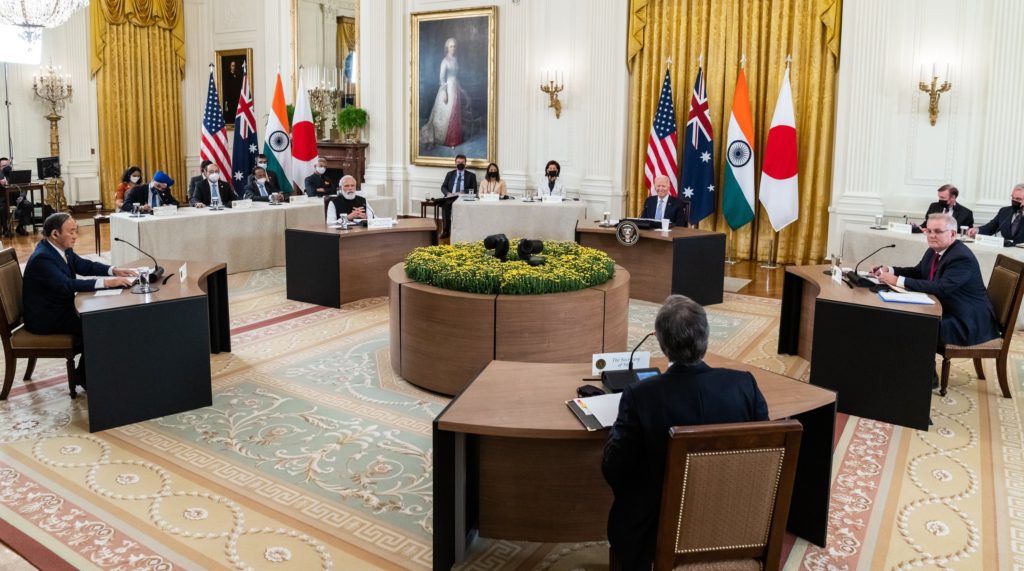
– On February 13, U.S. Secretary of State Antony Blinken met in Hawaii with his Japanese and South Korean counterparts and presented a united front against a recent uptick in ballistic missile tests by North Korea.
– On February 11, the Biden Administration released an Indo-Pacific Strategy paper which emphasized a need—and outlined several tactics—to prevent China from turning the region into its own “sphere of influence.”
– On February 6, it was reported that the Biden Administration plans to unveil its Indo-Pacific Economic Framework—a multi-track strategy intended to increase U.S. economic engagement in Asia—by March 31.
– On February 2, it was reported that President Biden is planning “several” stops throughout the Asia-Pacific region during his planned trip later this spring to attend a summit of the Quad in Japan.
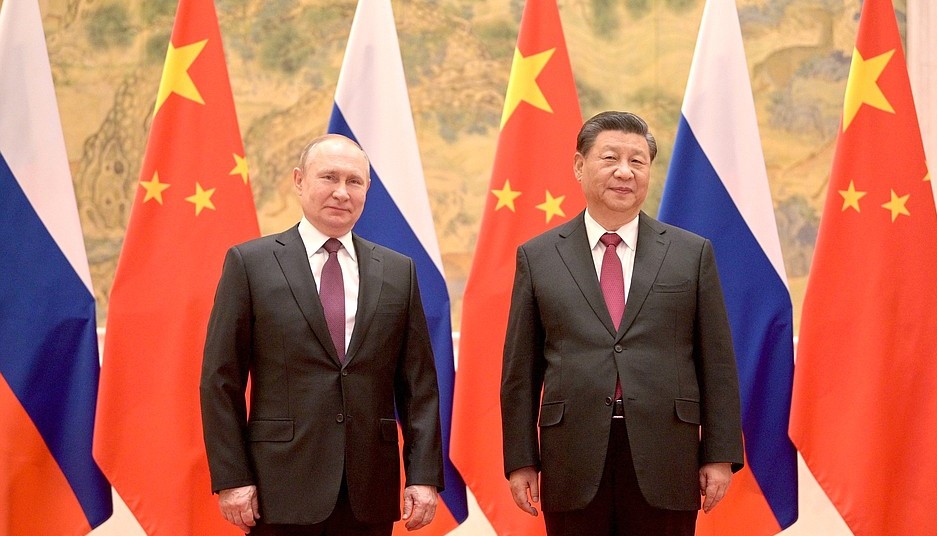
– On February 11, U.S. Secretary of State Antony Blinken told the Australian press that “others are watching…to see how we respond” to the crisis in Ukraine—several policy analysts have debated the extrapolation of the Ukraine case to Taiwan as Taipei itself “monitors” the situation.
– On February 4, Russian President Vladimir Putin and Chinese President Xi Jinping issued a joint statement from the sidelines of the Beijing Winter Olympics expressing solidarity against the U.S.-led effort to apply “unilateral approaches to addressing international issues” in Europe and the Asia-Pacific.
– On February 3, State Department spokesman Ned Price warned that the U.S. has “an array of tools” to deploy against “foreign companies, including those in China“ if they were to try and circumvent any potential U.S. export controls imposed on Moscow for an invasion of Ukraine.
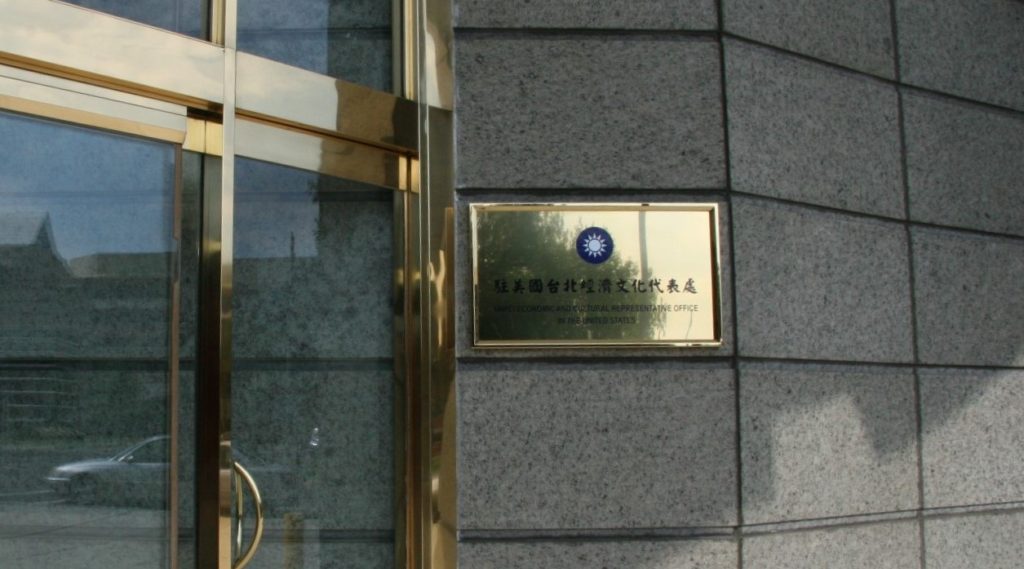
– On February 11, an unidentified aircraft flew over the island of Dongyin—a small island administered by Taipei near the mainland’s coast—in what is likely the first incursion into Taiwan’s territorial airspace (rather than its more expansive air defense identification zone) by a non-commercial Chinese aircraft in decades.
– On February 11, Taiwan “Ministry of Foreign Affairs” Spokesperson Joanne Ou voiced Taipei’s support for the Biden Administration’s proposed Indo-Pacific Economic Framework.
– On February 8, the U.S. Defense Security Cooperation Agency (DSCA) announced that it had certified a $100 million support contract to “sustain, maintain, and improve” Taiwan’s Patriot missile defense system.
– On February 3, a bipartisan group of U.S. legislators proposed two matching bills in the House and Senate that would require the Biden Administration to rename Taipei’s de-facto embassy in Washington from the ‘Taipei Economic and Cultural Representative Office’ to the ‘Taiwan Representative Office.’
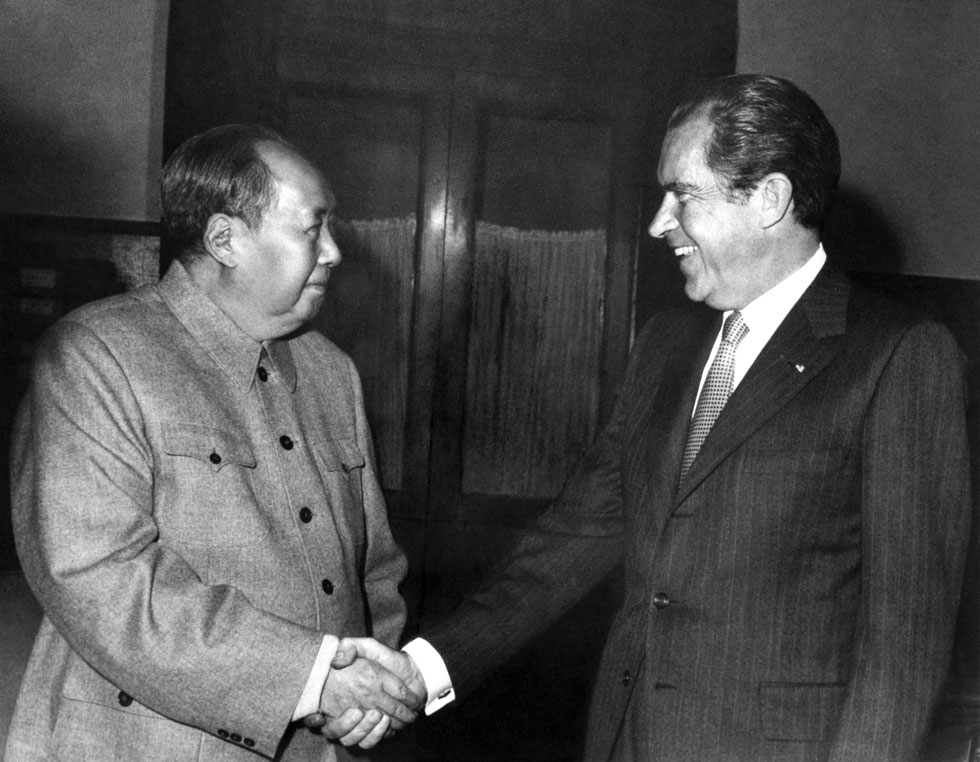
“China plans events with U.S. to mark 50th anniversary of Nixon visit,” Nikkei Asia, February 11 [Paywall]
“A Beijing think tank offered a frank review of China’s technological weaknesses. Then the report disappeared,” Science, February 8
“Ivy League’s Brown Rues ‘Big Mistake’ on U.S.-China College Ties,” Bloomberg, February 3 [Paywall]
“China’s Peng Shuai says there was ‘misunderstanding’ over her allegations, announces retirement,” The Washington Post, February 7 [Paywall]
“‘You’re treated like a spy’: US accused of racial profiling over China Initiative,” The Guardian, February 9
“‘Tough on China’ gains traction as electoral test,” Politico, February 10
“Top US diplomat denies the Quad’s purpose is to counter a rising China,” South China Morning Post, February 11 [Paywall]
“Asian caucus leader warns against encouraging xenophobia in debate on China competition bill,” The Hill, February 1
February 10 hosted by US-Asia Institute
February 11 hosted by Center for Strategic and International Studies
February 11 hosted by Atlantic Council
February 14 hosted by Project 2049 Institute
February 15 hosted by the APARC China Program
February 16 hosted by Center for Strategic and International Studies
February 17 hosted by German Marshall Fund
February 17 hosted by U.S.-China Economic and Security Review Commission
February 21 hosted by German Marshall Fund
March 8 hosted by German Marshall Fund
March 10 hosted by SupChina
March 23-24 hosted by SCMP Events
Data is the lifeblood of the digital economy. It is also an arena of fierce maneuvering as China and the United States seek to gain a leg-up in key industries that will define the Fourth Industrial Revolution. President Xi Jinping has emphasized the need to deepen the integration of Internet, big data and artificial intelligence with the real economy, and in just the past few months a number of important regulations have been issued. These include: (a) a revised cybersecurity regulation for network platform operators (stemming from the Didi Chuxing IPO debacle), (b) proposed security assessment rules for cross-border data export, and (c) proposed unified network data security regulations to implement China’s Data Security Law (DSL), Personal Information Protection Law (PIPL) and Cybersecurity Law. For his part, President Biden issued an executive order in June 2021 on protecting Americans’ sensitive data from foreign adversaries, and the Commerce Department followed up in November 2021 with a proposed rule that could well lead to platforms like TikTok being subjected to third-party auditing and monitoring of user data logs. Earlier, the Trump administration’s Treasury Department had enumerated ten categories of sensitive personal data to be placed beyond the reach of foreign adversaries.
What are the drivers behind the U.S. and China’s divergent approaches on data sovereignty? What are the key takeaways from these rules and regulations? Who are the key players involved? What are the investment implications for entrepreneurs and investors on both sides? And as the two sides seek to influence the Indo-Pacific’s cross-border data flow rules and standards, what are the implications of their increasingly mutually decoupled data universes for regional partners as well as for realizing a region-wide digital trade agreement?


Who Owns Antarctica? The Geopolitics of the Seventh Continent
Tuesday, April 5, 2022
6:00am – 8:00am EST
On April 5, 2022, ICAS Executive Director Dr. Nong Hong will be participating in a Graduate Institute of International and Development Studies conference “Who Owns Antarctica? The Geopolitics of the Seventh Continent” alongside other expert speakers. She will be discussing the important question: “Will China Compete for the Poles?”
Learn more about the event and the other speakers on this page.
Announcing Phase 2 of the ICAS MAP Antarctic Issue Tracker: Marine Conservation
ICAS is proud to launch Phase 2 of its Antarctic Maritime Issue Tracker! In light of the growing importance of Antarctica and its living resources, the new Marine Conservation Tracker details the CCAMLR systems that govern the conservation and sustainable management of marine living resources in Antarctica.
Accompanying this tracker release is a new commentary by Research Associate Matt Geraci on the roles that the United States and China play in Antarctic maritime governance and marine conservation regimes.
by Dr. Nong Hong
February 10, 2022
The timeline of US-China engagements in 2021, from the high-level meeting in Alaska in March to the virtual summit in Beijing and Washington in December, reflect the ups and downs of the bilateral relationship in the past year. Phrases such as “dominance around the Pacific,” “strength in commerce,” “high-tech supremacy,” “human rights and freedoms,” and “a voice in world leadership” are the primary themes that define China-US relations.
Will US President Joe Biden’s China policy in 2021 continue its trajectory in 2022? A close reading of the media coverage of Biden’s international affair policy, particularly his views on China, may provide an answer…
This commentary was originally published by China Daily on February 10, 2022.
by Sourabh Gupta
February 8, 2022
On January 20th, Joseph Biden marked his first year in office as the 46th president of the United States. At this time last year when he assumed office, a number of questions swirled on the horizon of U.S.-China ties.
After four years of fickleness, instability, threats and sanctions under Donald Trump, would President Biden deliver the U.S.-China relationship to a more normalized track of dialogue and cooperation? Would Mr. Biden rescind or modify the technology controls that his predecessor had imposed from May 2019 on in order to suppress China’s rise? Would Mr. Biden steer the U.S. government away from its decoupling-based theories and press China instead to keep structurally opening up and reforming its domestic marketplace? Would Mr. Biden soften the Trump administration’s defense guidance which, as encapsulated within its Strategic Framework for the Indo-Pacific, prioritized the “defen[se of] the first [western Pacific] island-chain nations, including Taiwan” and the domination of all domains outside the first island-chain vis-à-vis China? And could President Biden bring Washington to cooperate with Beijing on virus control and climate change – two issue areas that were manifestly in their mutual interest to do so?
A year on, the best that can be said about the Biden administration’s approach towards China is that it has stopped digging the bilateral relationship into a deeper hole than it found itself in…
On Wednesday, February 9, 2022, Senior Fellow Sourabh Gupta was quoted by the South China Morning Post in an article discussing reactions to Chinese de-globalization and rising nationalism.
On Tuesday, February 8, 2022, Senior Fellow Sourabh Gupta discussed the passage of the America COMPETES Act on CGTN’s the Hub with Wang Guan.
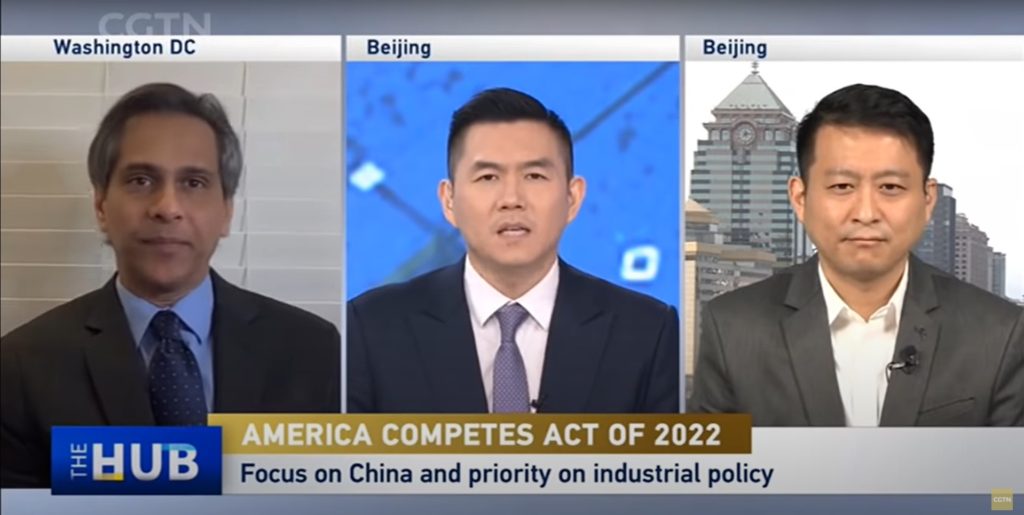

The Institute for China-America Studies is an independent nonprofit, nonpartisan research organization dedicated to strengthening the understanding of U.S.-China relations through expert analysis and practical policy solutions.
1919 M St. NW Suite 310,
Washington, DC 20036
icas@chinaus-icas.org
(202) 968-0595
© 2025 INSTITUTE FOR CHINA-AMERICA STUDIES. ALL RIGHTS RESERVED.